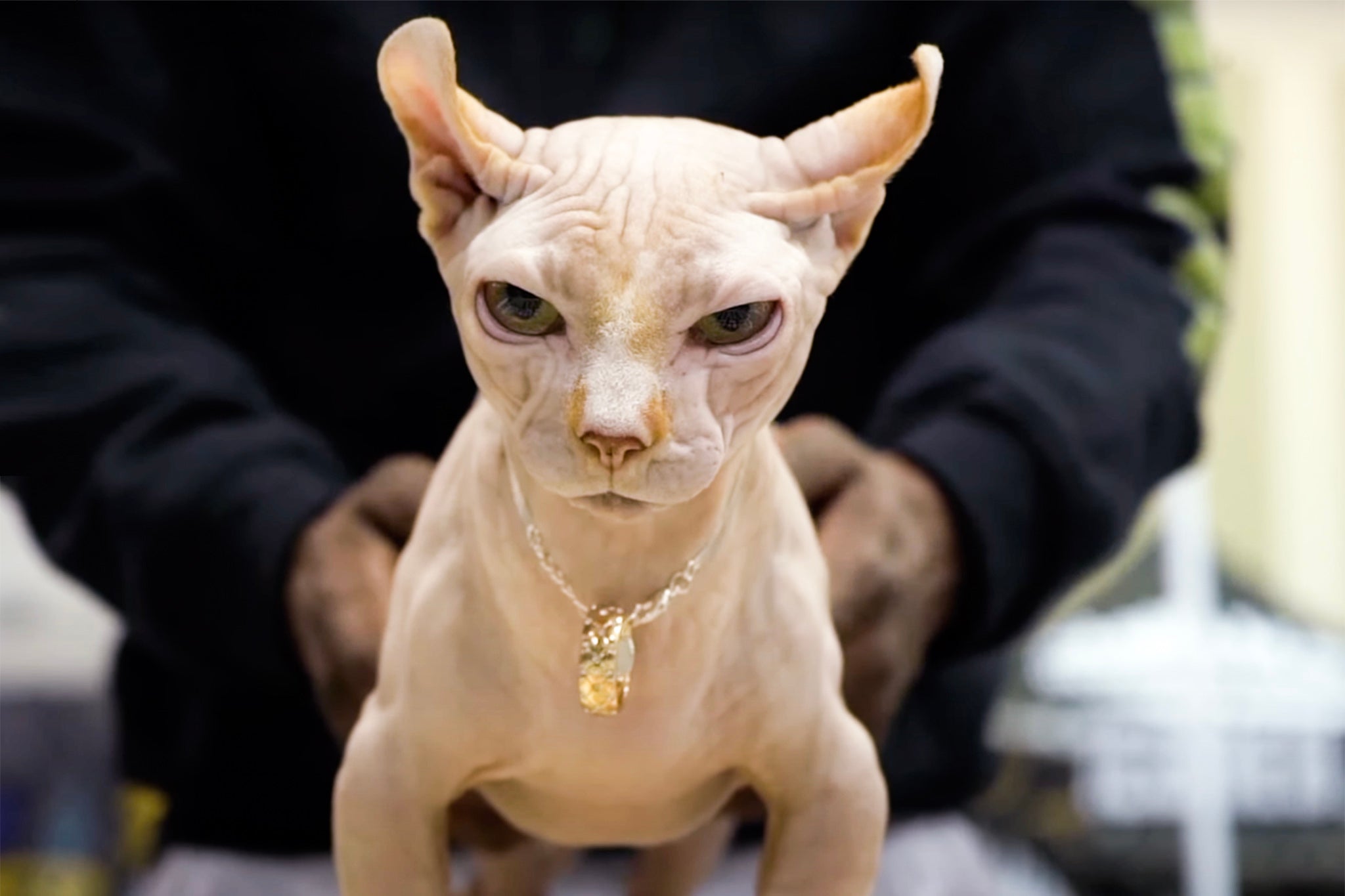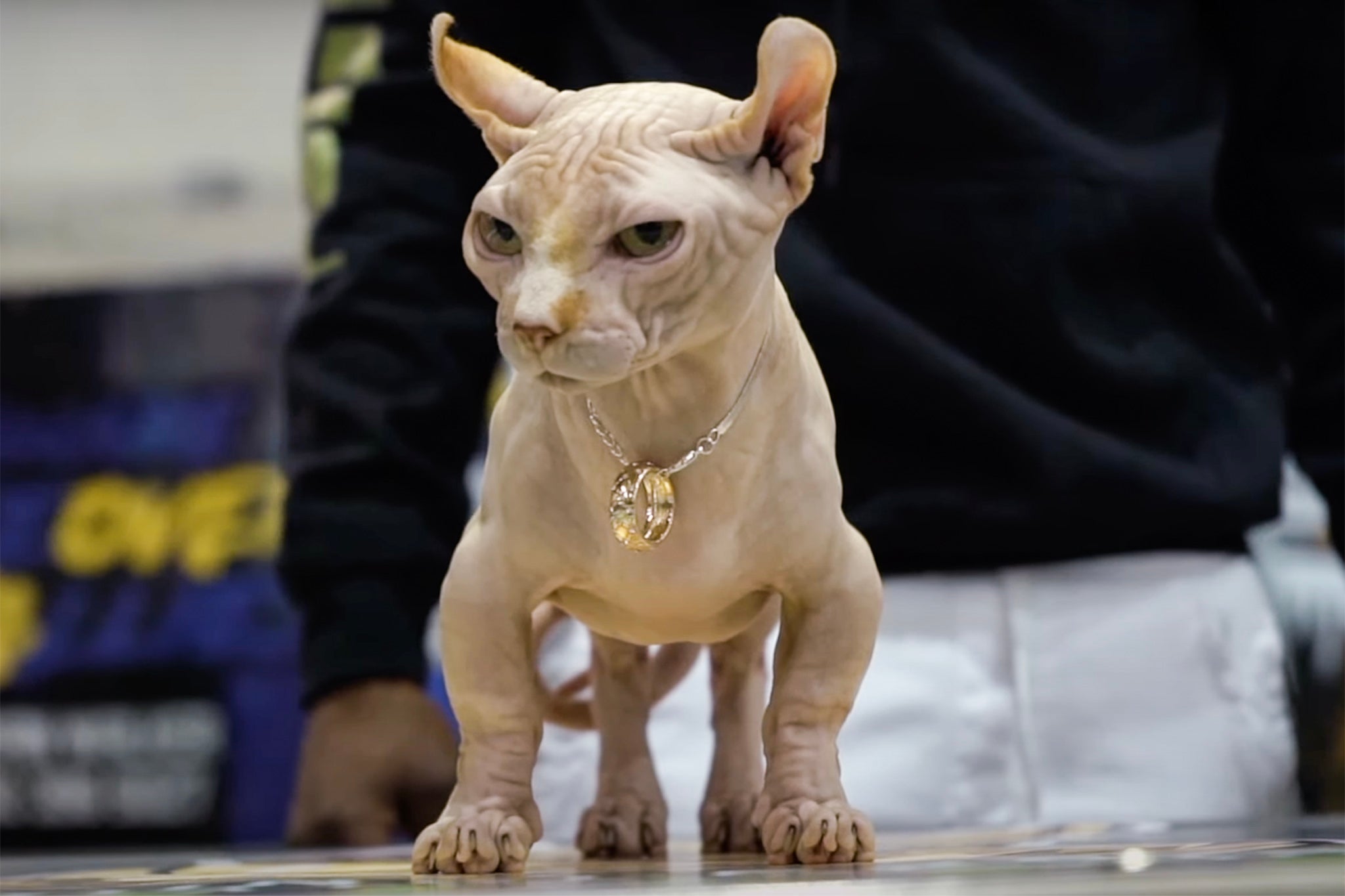Warning as ‘exaggerated’ hairless ‘bullycats’ being bred in UK despite serious health issues
Experts said the public should not get a breed of hairless Sphynx-like cats as they are likely to suffer serious health issues

Your support helps us to tell the story
From reproductive rights to climate change to Big Tech, The Independent is on the ground when the story is developing. Whether it's investigating the financials of Elon Musk's pro-Trump PAC or producing our latest documentary, 'The A Word', which shines a light on the American women fighting for reproductive rights, we know how important it is to parse out the facts from the messaging.
At such a critical moment in US history, we need reporters on the ground. Your donation allows us to keep sending journalists to speak to both sides of the story.
The Independent is trusted by Americans across the entire political spectrum. And unlike many other quality news outlets, we choose not to lock Americans out of our reporting and analysis with paywalls. We believe quality journalism should be available to everyone, paid for by those who can afford it.
Your support makes all the difference.The RSPCA have warned the public about a “concerning” trend of so-called “bullycats”, urging people to avoid buying one.
Experts said the public should not get a breed of hairless Sphynx-like cats as they are likely to suffer serious health issues.
The RSPCA warned these “exaggerated” Sphynx cats are bred with very short legs, which could put a strain on their joints, as well as “excess skin folds” which leaves them vulnerable to adverse skin conditions.
The problems can cause great discomfort for the cats and could leave owners with frequent and expensive vet bills.
Bullycats have attracted ‘a disturbing following’ on social media platforms in recent months, animal welfare charity Naturewatch Foundation said.
The breed is called “bullycat” due to its supposed resemblence to Bully dogs. Since February, it has been a criminal offence to own an XL bully dog in England and Wales without an exemption certificate.

The RSPCA added that the lack of fur on the Sphynx-like cats could leave them vulnerable to harmful ultraviolet light, and unable to use their hair and whiskers to “explore their environment”.
There could also be further health issues associated with these cats being bred from a limited gene pool, a spokesperson for the charity added.
Dr Dan O’Neill, Associate Professor of Companion Animal Epidemiology at the Royal Veterinary College (RVC), said it is “heartbreaking” to see the “enormous suffering that humans have imposed on dogs” now being done to cats.
“Bullycats are likely to suffer similarly shortened lives to those reported from a recent RVC VetCompass paper in Sphynx cats that lived just 6.7 years compared to an average of 11.7 years in cats overall,” he added.
“The advice to anyone thinking of acquiring a cat or a dog is to always put the welfare of the animal first and to stop and think before acquiring an animal with an extreme and unnatural body shape that does not exist commonly in nature.”
An RSPCA spokesperson told The Independent: “We understand that their emerging presence on social media may fuel a demand for these kinds of cats but we would urge fellow cat lovers to consider adopting the many rescue cats in our care instead of buying from a breeder. We would also urge breeders to prioritise the health and welfare of any animal over the way they look.”
Join our commenting forum
Join thought-provoking conversations, follow other Independent readers and see their replies
Comments